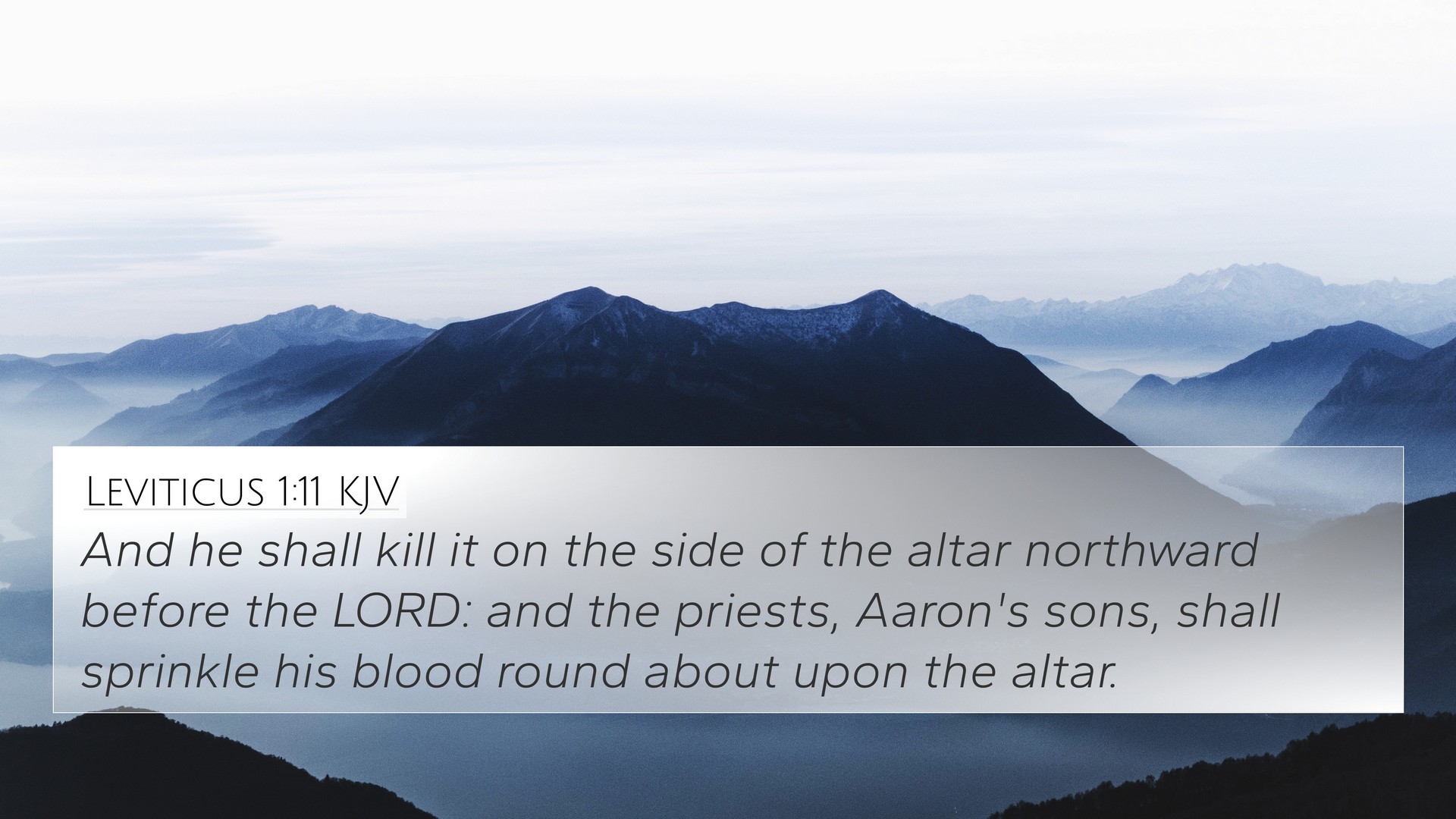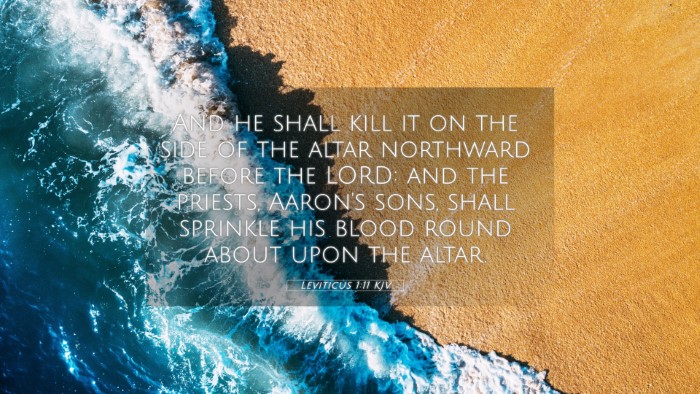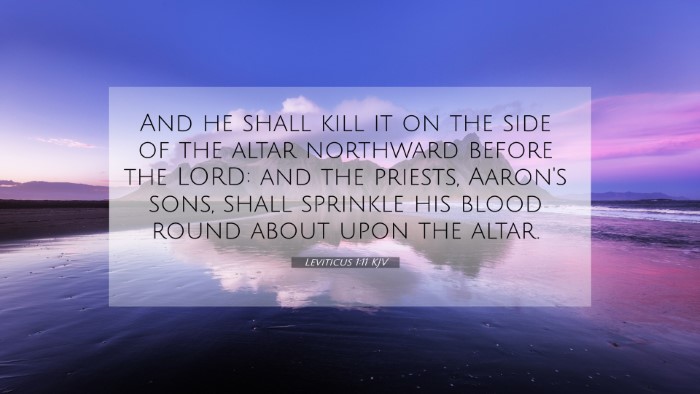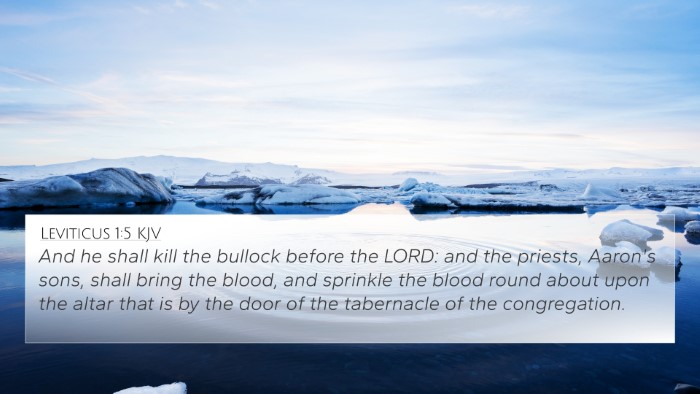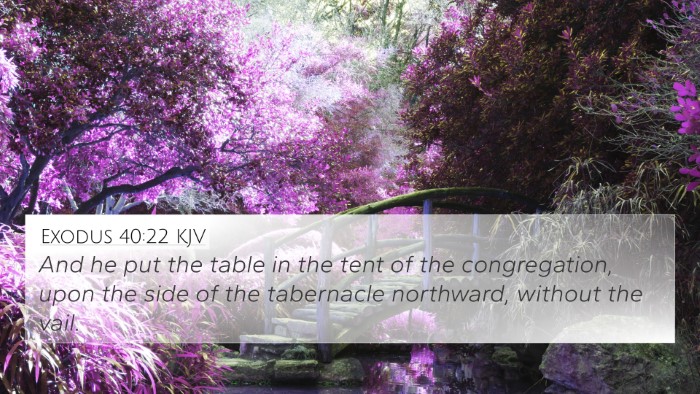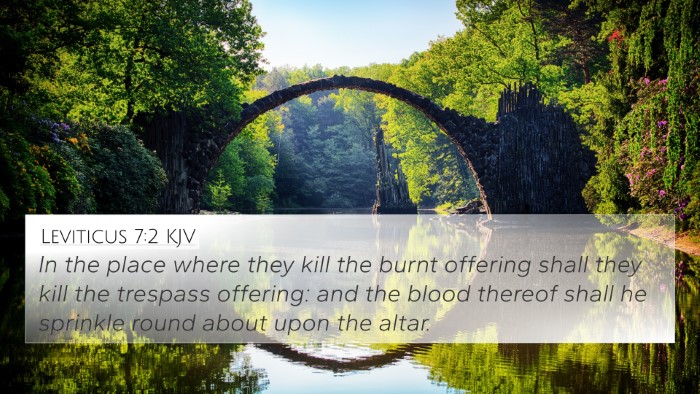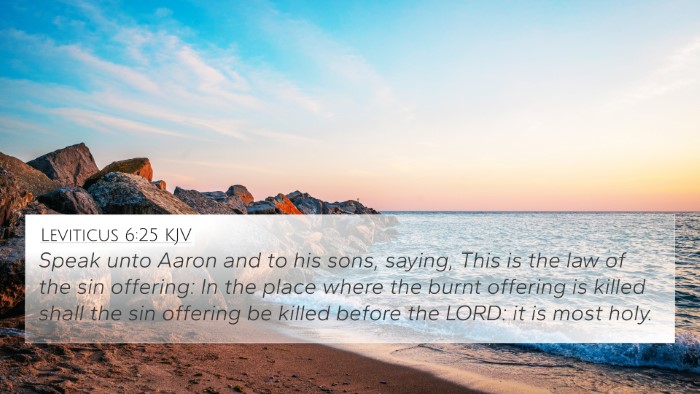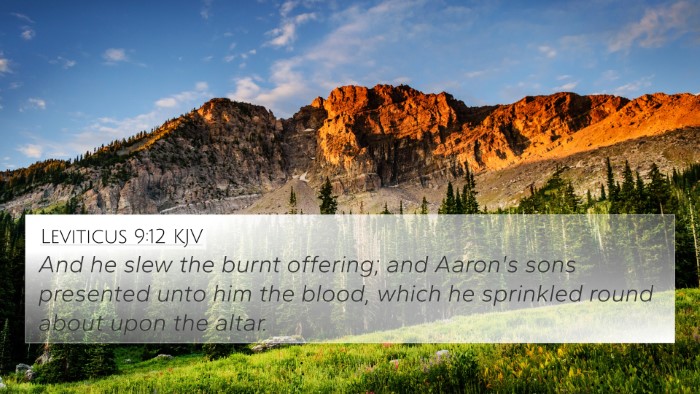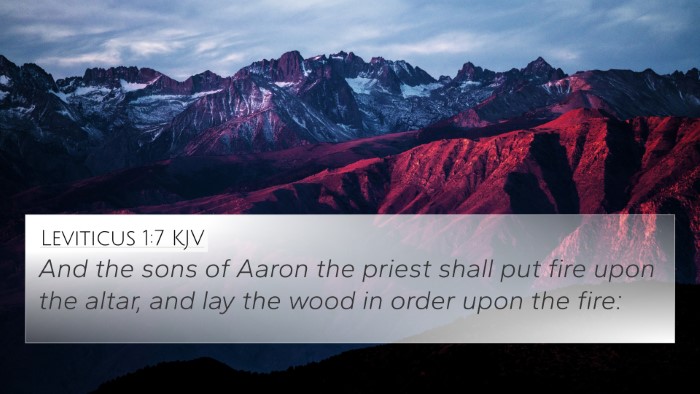Understanding Leviticus 1:11
Leviticus 1:11 states:
"And he shall kill it on the side of the altar northward before the LORD: and the priests, Aaron's sons, shall sprinkle his blood round about upon the altar."
This verse plays a crucial role in understanding the sacrificial system established in the Mosaic Law. Below, we explore its meaning, significance, and connections to other Bible verses through insights from various public domain commentaries, including Matthew Henry, Albert Barnes, and Adam Clarke.
Meaning and Significance
The primary focus of Leviticus 1:11 is the procedure related to burnt offerings. Here’s a detailed exploration:
- The Act of Killing: The act of killing the animal signifies the seriousness of sin and the necessity of atonement. Matthew Henry emphasizes that the innocent animal takes the place of the guilty sinner, offering a poignant picture of substitutionary sacrifice.
- The Location: Killing the offering “northward before the LORD” highlights a specific divine command regarding the sacrificial rituals, denoting a place of honor and significance in worship.
- The Role of the Priests: As noted by Albert Barnes, the priests executing the ritual symbolize the mediator between God and man, demonstrating the necessary involvement of spiritual authority in sacrificial acts.
- Blood Sprinkling: The sprinkling of blood around the altar is essential because blood represents life and atonement. Adam Clarke explains that this act signifies the sanctification of the altar and the importance of life being given for sin.
Cross-References
Leviticus 1:11 can be linked to several related scriptures, showcasing its integration into the broader biblical narrative and themes of sacrifice and atonement:
- Hebrews 9:22: "And almost all things are by the law purged with blood; and without shedding of blood is no remission." This verse clarifies the necessity of bloodshed for forgiveness.
- Exodus 12:7: "And they shall take of the blood, and strike it on the two side posts and on the upper door post of the houses wherein they shall eat it." This reference relates to the Passover and emphasizes the protective power of blood.
- Leviticus 4:27-31: Discusses the sin offering process, further illustrating the theme of sacrifice and atonement.
- Romans 3:25: "Whom God hath set forth to be a propitiation through faith in his blood." This passage connects the concept of Jesus as the ultimate sacrifice for believers.
- Isaiah 53:5: "But he was wounded for our transgressions, he was bruised for our iniquities: the chastisement of our peace was upon him; and with his stripes we are healed." This prophetic verse reveals the theology of substitutionary sacrifice.
- 1 Peter 1:19: "But with the precious blood of Christ, as of a lamb without blemish and without spot." This verse links Christ's sacrifice to the Old Testament sacrificial system.
- Matthew 26:28: "For this is my blood of the new testament, which is shed for many for the remission of sins." Here, Jesus connects His sacrifice to the Old Testament principles established in Leviticus.
Connections between Bible Verses
Understanding Leviticus 1:11 requires examining the connections it holds with both Old and New Testament scriptures:
- Thematic Connections: The themes of sacrifice, atonement, and mediation recur throughout scripture, showcasing God’s holistic plan for redemption.
- Inter-Biblical Dialogue: Cross-referencing between the law in Leviticus and the grace found in the New Testament helps believers appreciate the continuity of God's plan.
Tools for Bible Cross-Referencing
For those studying the connections between biblical texts, several tools can facilitate an in-depth study of Leviticus 1:11 and related verses:
- Bible Concordance: A comprehensive Bible concordance can help identify keywords and themes across different scriptures.
- Bible Cross-Reference Guide: Utilizing a cross-reference guide allows readers to see parallels between verses.
- Cross-Reference Bible Study: Engaging in a cross-reference Bible study can enhance understanding of biblical narratives and theological concepts.
- Bible Reference Resources: These resources are invaluable for in-depth study of specific verses, themes, and connections.
Conclusion
Leviticus 1:11 serves as a foundational verse in understanding the sacrificial system of the Old Testament, pointing toward the ultimate sacrifice of Jesus Christ. By engaging with this verse and utilizing cross-referencing tools, believers can deepen their understanding of biblical connections and the overarching narrative of atonement throughout scripture.
